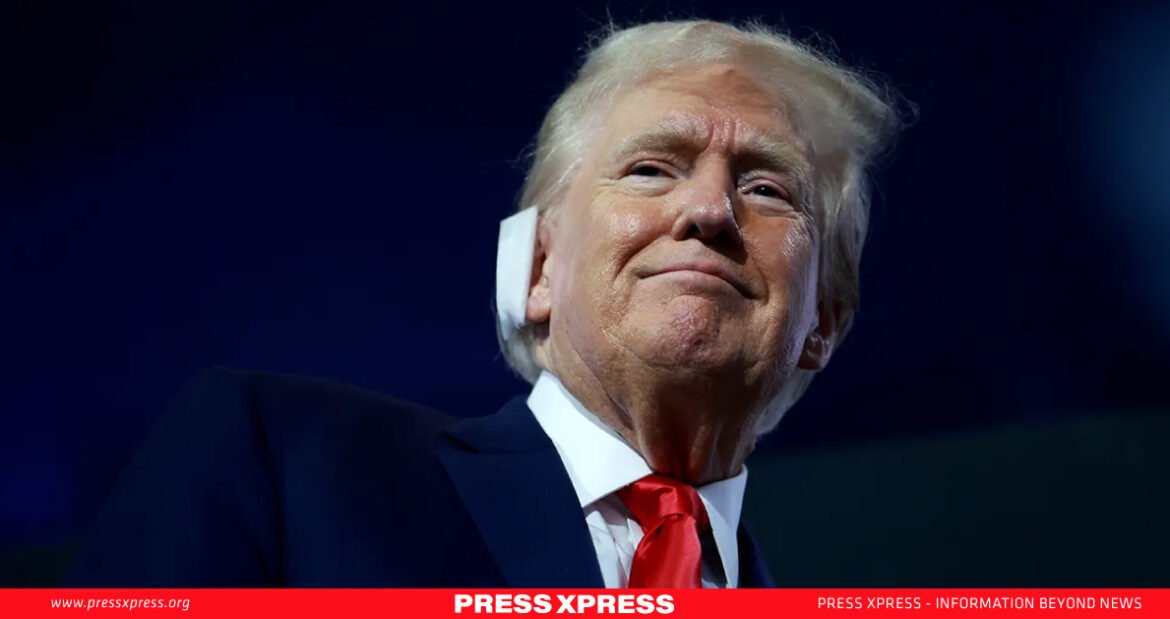As the possibility of Donald Trump’s return to the U.S. presidency looms, world leaders are taking steps to prepare for potential shifts in American foreign policy. From Europe to Asia and the Middle East, nations are strategizing to address the challenges and opportunities that another Trump administration might bring.
Europe Strengthens Its Defenses
European leaders are actively preparing for a possible Trump presidency, with concerns about its impact on NATO and regional security at the forefront. Germany and France are leading the charge in boosting defense spending, responding to fears that Trump might reduce U.S. support for NATO – a stance he took during his previous term when criticizing member states for not meeting their defense spending commitments.
You Can Also Read: ‘Time to End Gaza War,’ Kamala Harris Pushes Netanyahu!
Belgian Prime Minister Alexander De Croo has emphasized Europe’s need for greater self-reliance, echoing a growing sentiment among EU leaders. They worry that Trump’s “America First” approach could lead to decreased U.S. involvement in European security matters. French President Emmanuel Macron has stated that Europe must be ready to defend itself without relying on external support.
In response to these concerns, European countries are enhancing their military capabilities. They’re focusing on increasing ammunition and weapons production, particularly to support Ukraine. The EU is also exploring more coordinated defense efforts, with some leaders proposing a stronger European role within NATO. These preparations highlight the uncertainty surrounding potential changes in U.S. foreign policy under Trump and their effects on European security and the broader geopolitical landscape.
Asia Braces for Potential Changes
Asian nations are also gearing up for possible shifts in U.S. foreign policy under a Trump presidency. Countries like Japan and South Korea are particularly concerned about increased pressure to boost their defense spending. During his previous term, Trump pushed allies to contribute more to their own defense, a stance that could strain national budgets if renewed.
China is especially wary of potential trade tensions, anticipating that Trump might revive his aggressive trade policies. Vietnam, expecting a continuation of Trump’s focus on trade deficits, is working to diversify its supply chains and strengthen regional ties.
Middle East Anticipates Policy Shifts
The Middle East is preparing for potential changes if Trump returns to office. His previous term was marked by a hard-line approach toward Iran, including withdrawal from the nuclear deal and increased sanctions. This contrasted sharply with the Biden administration’s attempts at diplomatic engagement with Tehran.
Trump’s policies in the region were often unpredictable. At times, he supported Saudi actions, such as during the Qatar crisis, while at other times, he surprised allies with sudden moves like recognizing Jerusalem as Israel’s capital. His administration’s close ties with Israel could lead to reduced pressure on settlement issues and possibly decreased aid to Palestine.
Gulf states, particularly Saudi Arabia, might welcome Trump’s return, preferring his pragmatic approach to Biden’s emphasis on human rights. However, Trump’s transactional style could result in policy inconsistencies, as seen in his past dealings with Turkey and the Kurds.
To prepare for possible U.S. policy changes, Middle Eastern countries are focusing on maintaining regional stability and balancing their relationships with major powers like China and Russia. This includes strengthening economic and military ties and carefully managing complex diplomatic landscapes.
Potential Global Consequences
A second Trump presidency could reshape global politics in several ways. In the Middle East, his approach might intensify existing conflicts and alter alliances. His stance on Iran could heighten tensions, while his support for Israel may reduce U.S. involvement in peace negotiations.
In Asia, Trump’s focus on economic nationalism could escalate trade tensions with China. His unpredictable policies might strain U.S. alliances in the region, prompting countries like Japan and South Korea to reassess their security strategies.
Europe could face challenges with a less supportive U.S. stance on NATO, potentially weakening transatlantic security ties. This might push European nations to boost their defense capabilities independently.
Overall, Trump’s return could lead to a more fragmented international order, with increased regional tensions and a more transactional U.S. foreign policy approach. This shift may test existing alliances and contribute to global instability.
Speculative Scenarios
If Trump returns to office, he might push for a quick resolution in Ukraine, possibly favoring a settlement that acknowledges Russian control over occupied regions. This could alter the balance of power in Europe and diminish NATO’s influence.
In Asia, Trump might intensify economic tensions with China, potentially imposing higher tariffs and restricting Chinese investments in U.S. infrastructure. This could accelerate economic decoupling between the two nations.
Furthermore, Trump’s potential disregard for international norms and intelligence-sharing could strain U.S. alliances, leading to a more isolationist foreign policy stance. This shift may create a more fragmented global order and increase regional instability.
Conclusion
Donald Trump’s potential return to the U.S. presidency could bring substantial changes to global politics. His administration may alter U.S. foreign policy, affecting relationships with allies and adversaries alike. Trump’s “America First” agenda could result in reduced U.S. involvement in NATO and strained relations with European nations, especially if trade tariffs are reintroduced. In Asia, tensions with China may escalate, impacting trade and regional stability. The Middle East could see a continuation of hardline policies, particularly regarding Iran and Israel. Ultimately, a second Trump presidency might lead to a more isolationist U.S. stance, reshaping international alliances and economic policies.


